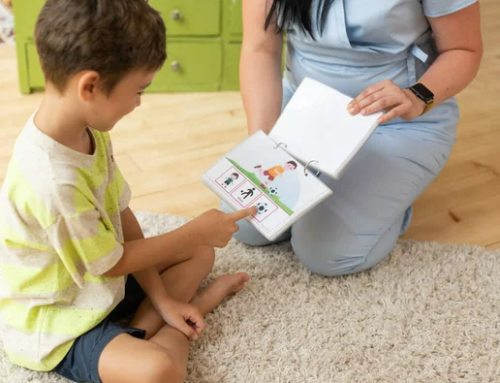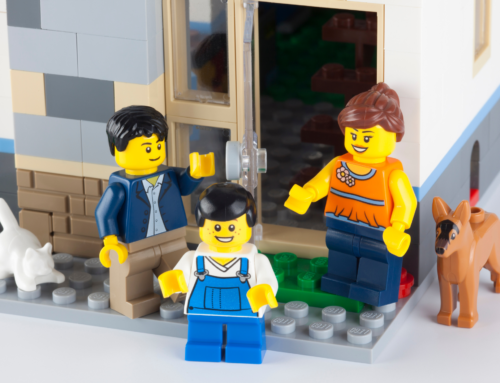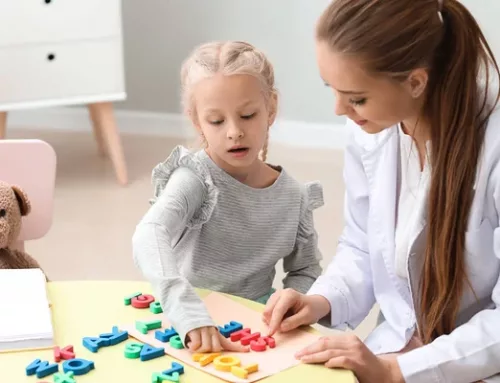Christmas carols, decorating the Christmas tree, various colourful Christmas light decorations, a visit and photo with Santa, eating plenty of delicious food, presents and quality time with loved ones. The Christmas period is a fun and exciting time for children and their families, however, it can also bring about added stress, anxiety, and sensory overload which can lead to meltdowns for some children.
So how can I tell my child is getting a bit overloaded?
There are many signs to look out for that may indicate that your child is starting to experience sensory overload. Paying attention to these signs puts you in a better position to help regulate your child and avoid meltdowns. Some of the tell-tale signs include:
- Their behaviour and energy levels are very heightened
- They are withdrawn and not wanting to participate in their usual everyday activities
- They are extremely bothered by what might appear to others as a quiet or subtle sound. You might notice them covering their ears, scrunching eyes, mouth and nose up or making sounds from their mouth to overcompensate for the noise they are having difficulty tolerating.
As a parent you may be aware of other tell-tale signs that your child is getting a bit overwhelmed with sensory input to pay attention to.
How can I help reduce or prevent sensory overload for my child?
We have put together a list of helpful ways to reduce sensory overload so your family can enjoy this special time together.
Try to maintain your everyday routine as much as possible.
 Routines can be hard to keep at Christmas time with different social events being scheduled, school being finished for the year and parents taking time off from work commitments. While most look forward to the break in their everyday routine, children with sensory processing difficulties thrive on routine and when this goes out the window, meltdowns often occur. Families should try and keep basic daily activities that the child would do on a ‘normal’ day during the busy Christmas period. An example is maintaining the regular morning routine- getting up, having breakfast, getting dressed, brushing teeth etc.
Routines can be hard to keep at Christmas time with different social events being scheduled, school being finished for the year and parents taking time off from work commitments. While most look forward to the break in their everyday routine, children with sensory processing difficulties thrive on routine and when this goes out the window, meltdowns often occur. Families should try and keep basic daily activities that the child would do on a ‘normal’ day during the busy Christmas period. An example is maintaining the regular morning routine- getting up, having breakfast, getting dressed, brushing teeth etc.
Remember, don’t feel like you need to over-commit to social events during the festive season and feel confident to politely decline invites to keep a reasonable balance for you and your family. Prioritise your events and put your family first.
Prepare your child for upcoming events and gatherings
A visual calendar that your child has access to will help them prepare for activities and events that are scheduled for that day or are up and coming. If your child really struggles with changes, a visual ‘change-board’ (you can you a whiteboard, blackboard, piece of paper) that sits next to the calendar can be helpful and you can write if something has been cancelled or altered. If you child asks questions about what is happening provide as much detail as you can as this will help reduce some of their worries.
Having a ‘safe’ place or code word to use with your child can help your child communicate to you when they are starting to feel overwhelmed, and you can then guide them to a quiet spot or provide them with whatever it is that they need to regulate. If you are spending time at someone else’s house, ask the host if there is a room or space that your child can have access to if needed.
Be aware when your child might be exposed to new or unfamiliar sensory experiences
Sensory experiences may include your child being exposed to visual, tactile (touch), auditory (noise), oral (taste), proprioceptive (movement), and vestibular (balance) input during various activities. Consider flashing Christmas lights, lots of brightly coloured Christmas decorations, loud and busy environments (shopping centres, Christmas carols, different family gatherings), unfamiliar people and settings (photo with Santa) and various new foods with different smells, textures and taste.
 Exposure to these different experiences can be overwhelming for some children, so if you can, talk to your child about what they should expect and brainstorm some ways to help them participate. Some suggestions include:
Exposure to these different experiences can be overwhelming for some children, so if you can, talk to your child about what they should expect and brainstorm some ways to help them participate. Some suggestions include:
- Social stories can help your child prepare and understand what is happening and what they should expect in different situations/scenarios. Social stories are a personalised story that has the child’s name and/or photo in it and the story relates directly to your child’s individual situation. Allowing your child to wear sunglasses (bright lights) or headphones (loud noises)
- Attending shopping centres or busy environments at quieter times (many centres have an allocated ‘quiet time’ which is targeted to those who have sensory processing difficulties).
- Bring your own safe foods or foods that your child is comfortable with to events where food is provided and allow your child to eat away from the main dining area if they need to as the smells can be overwhelming.
The Wrap Up
In summary, you, and your child know themselves the best so tune into that and work together to make this an enjoyable time for everyone. Don’t place too much pressure on attending various social events and take the time to rest when you notice it is needed. Christmas can become overwhelming for all of us at times so be on the lookout for any signs that your child is becoming overwhelmed as assisting with early signs can reduce big meltdowns. The main message is to make Christmas suitable for YOUR family. It doesn’t need to be like everyone else’s Christmas so long as you can all spend quality time with each other and enjoy the day.











